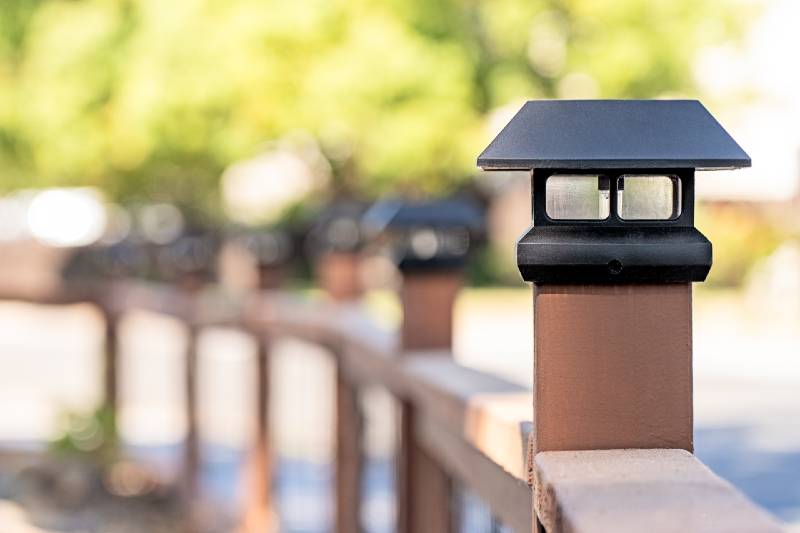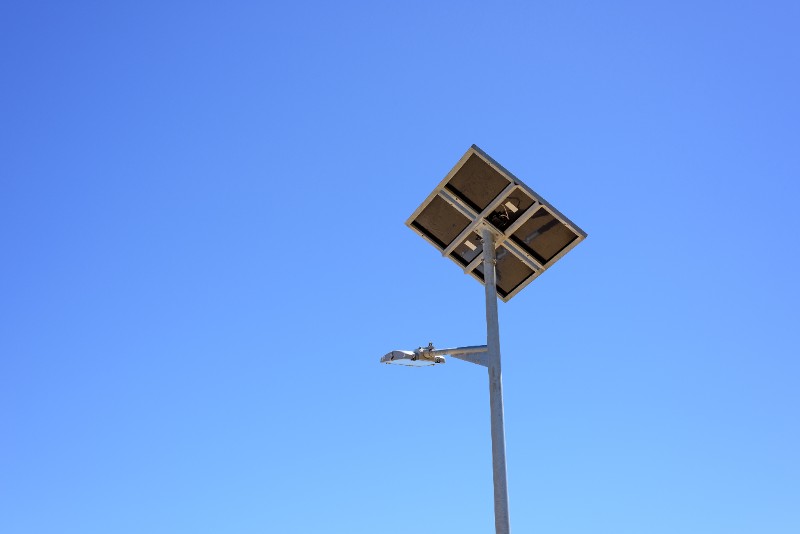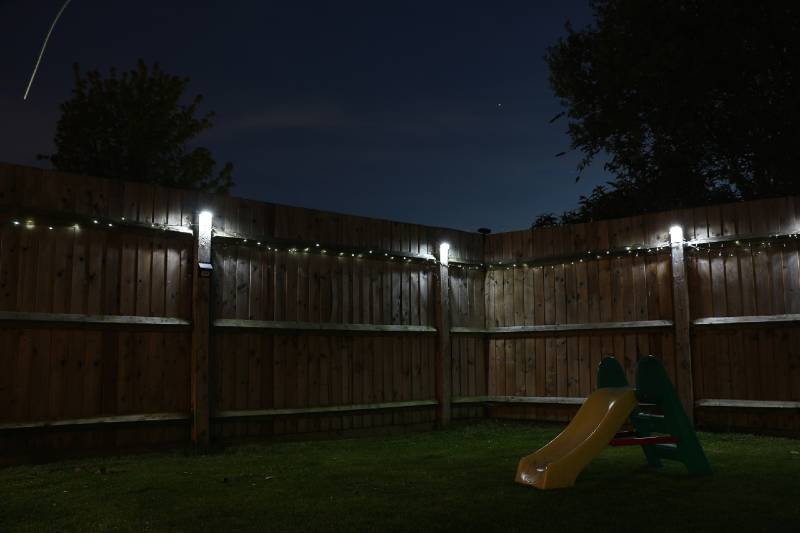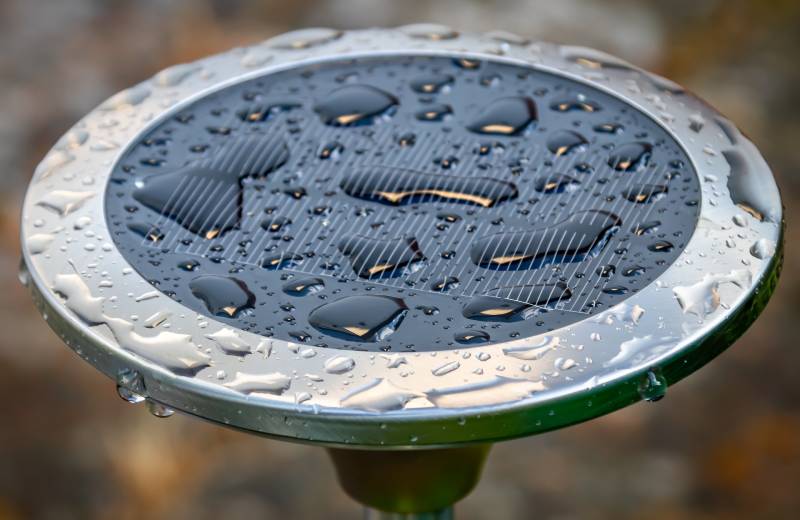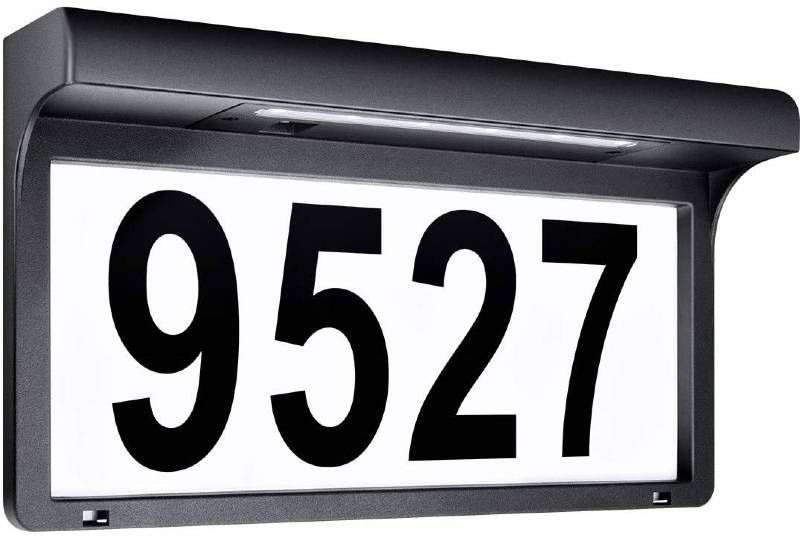If you’ve ever owned some of solar lights, you may have noticed that there is an on/off switch on it.
But why is there such a thing?
Isn’t the whole point of solar lights that they turn on and off automatically?
The answer to this question is yes, but there are some cases where you may want to manually turn your lights off, such as deep charging your battery, saving energy, resetting your solar lights, and many more solar-powered lights.
And that’s why there is an on/off switch. It’s simply for your convenience.
In this article, we will discuss some of the reasons why you may want to use the on/off switch on your solar lights, how the on/off switch works, and whether you should leave your solar lights on all the time.
How Does the Solar Light Switch Work?
Before getting into why solar lights have an on-off switch, it’s important to understand how solar lights work and what this switch does.
Solar powered lights work by converting sunlight into electricity and then storing that energy in a battery to power the lights at night.
At night, when the light sensor detects darkness (absence of light), it opens the path between the battery and LEDs, allowing the battery to power the light.
The on/off switch essentially interrupts this process by disconnecting the battery from the LEDs.
When you turn the switch to the “off” position, it blocks the flow of electricity from the battery to the LEDs, effectively turning off the solar lights or making the solar lights turn on.
However, the switch doesn’t affect the solar panel to the battery connection, so the solar lamp will still charge the battery during the day.
In simpler terms, when the switch is in the “on” position, your solar lights will charge during the day and turn on at night.
And when the switch is in the “off” position, your solar light will continue to charge during the day but will not turn on at night like not all solar lights.
Why Do Solar Lights Have an On-off Switch In The Solar Panel?
1. Preserve Battery Charge In Solar Panels
The average solar light needs about 6 hours of direct sunlight to fully charge the battery and provide enough power for the light sensor to stay on all night.
However, if you live in an area with shorter days or less sunlight, your lights won’t be able to generate enough power to do so.
Most of the time, it’s fine, you don’t need the lights to run from dusk to dawn.
But sometimes, you do!
And in this case, the best thing you can do is to turn off your lights the night before.
This way, the solar lights will have 2 full days of direct sunlight to charge the batteries and will be able to provide enough power for the light sensor to stay on all night.
Of course, if you live in an area with longer days or more sunlight, you don’t need to worry about this as much.
But it’s a useful tip if you’re looking to preserve battery power.
2. Deep Charge Your Battery In The Solar Panel In Oreder To Make The Solar Light Turn On Or Off
Batteries have something called the “memory effect.”
This means that if you only partially charge your battery, it will become “conditioned” to only hold that much charge.
For example, if you only charge your battery to 50%, it will only be able to hold 50% of a charge from then on.
To prevent this from happening, it’s important to occasionally give your battery a “deep charge.”
This means charging it up to 100%.
And the best way to do this is to turn off your lights and let the solar lamp charge the battery for 3 days without interruption.
This will ensure that your battery is able to hold a full charge and will prolong its lifespan of a solar panel.
3. Store Your Solar Lights
If you’re not going to be using your solar lights for a while, it’s advised that you store them with the switch in the “off” position.
This will protect your battery from discharge and prevent it from being damaged.
4. Reset Your Solar Lights
If your solar lights stop working, the first thing you should do is reset your lights by turning them off, waiting for 20 seconds, and then turning them back on.
This will give your lights a chance to reset and may fix the problem.
5. Indoor Solar Lights
Some solar lights are specifically designed for indoor use and you must have a way to make a solar light turs them off when needed.
That’s why all solar indoor light have an on/off switch.
6. Stargazing In Solar Panels
If you’re someone who loves to stargaze, you know that even the smallest amount of light can ruin your perfect view of the night sky.
Luckily, solar manufacturers have thought of this and made it possible for you to turn your solar lights off when you don’t need them.
How Does A Solar Light Turn On
Solar lights have LEDs (light-emitting diodes) and one of the most important features of LEDs is that they have a voltage threshold, meaning that they will only turn on when a certain voltage is applied to them.
Most solar lights LEDs have about a 3.5-volt threshold, so you need at least that much voltage to turn them on.
Now, a solar light has 2 circuits:
The first one is the photoresistor circuit (1.2 volts) and it’s the one responsible for charging the battery during the day and preventing the solar light from coming on.
The photoresistor is simply a resistor that changes its resistance based on the amount of light that it’s exposed to.
When exposed to sunlight, the resistance level decreases, reducing the voltage of the circuit to about 1.2V, which is not enough to turn on the LED, so the light remains off.
The second circuit is the LED circuit (about 3.7 volts) and it’s responsible for turning the solar light on at night.
When it’s dark, the photoresistor resistance becomes very high, so the current refuses to flow through it and instead flows through the battery-LED circuit with the help of a PNP transistor.
And since the Battery-LED circuit (3.7V) has a bigger voltage than the LED voltage threshold (3.5V), the light turns on.
FAQs
Do All Solar Lights Have an on/off Switch?
Almost all solar lights have an on/off switch because it’s such an important feature that has so many benefits.
Should A Solar Light Be Switched on to Charge?
The solar light switch position doesn’t affect the charging of the batteries.
The batteries will charge regardless of whether the switch is in the on or off position.
When Charging a Solar Light Should the Switch Be on or off?
Solar light is designed to charge whether the switch is in the “on” or “off” position.
How Do You Know If a Solar Light Is on or off?
You can tell if a solar light is on or off by the position of the switch located on the side or back of the light.
The “on” position is usually up while the “off” position is down.
Do Solar String Lights Have an on/off Switch?
Most solar string lights have an on/off switch, you can usually find it on the battery pack.

